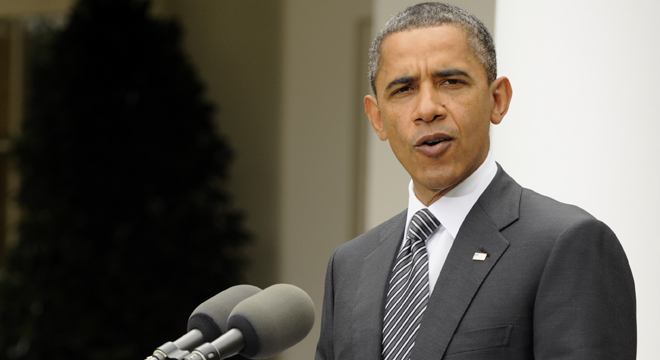“We Can’t Wait” is the White House’s new economic rallying cry. With Senate Republicans committed to filibustering President Obama’s jobs bills, and House Republicans refusing to hold votes on them, the administration is taking some steps that don’t require Congress to act.
The most significant of these, announced Monday, will allow people with underwater mortgages to refinance at favorable rates if their mortgages are backed by Fannie Mae or Freddie Mac. It will expand the existing Home Affordable Refinancing Program to all underwater homeowners, leaving people with more money in their accounts every month, and thus, as David Dayen has pointed out, functioning as a de facto stimulus.
Will it move the needle on unemployment though? It depends on whom you ask, but the broad view seems to be it won’t on its own fix the ailing economy. But it is expected to jack up the number of mortgage refinancings.
“Under the restrung HARP, I expect an additional 1.05 million [refinancings] through the end of 2012 and 1.6 million [refinancings] through the end of 2013 when the program ends,” said Moody’s top economist Mark Zandi in an email. “While HARP won’t live up to the initial expectations of 4-5 million in refinancings, the program will ultimately provide a meaningful boost to the broader economy as financially stressed households will benefit from much lower mortgage payments. It will also provide a bit of help to the housing market by forestalling some mortgage defaults.”
“While I think this was a very positive step, it isn’t a magic bullet for the housing market and economy,” Zandi added. “Policymakers will thus very likely have to do more to support the housing market and economy.”
Dean Baker, co-director of the Center for Economic Policy Research, says it’s “hard to see [the program] amounting to much.” He assumes the revamped program to help closer to 500,000 homeowners over the next couple years. “That’s something, but
if we assume an average saving of $4,000 each, this gets us $2 billion in money freed up. Also, in many cases these people would be better off walking away.”
Every little bit helps, says Baker, but much this programs offers less than is necessary to move the needle on unemployment or stabilize the housing market.
The White House’s liberal critics argue that the administration could do more — a broader refinancing program, one that creates greater incentives for lenders and borrowers, and perhaps one that actually reduces homeowner’s principal, to bring them back above water. Bolder steps may be on the horizon. White House spokesman Jay Carney told reporters Monday to expect further executive action by President Obama in the weeks ahead.










